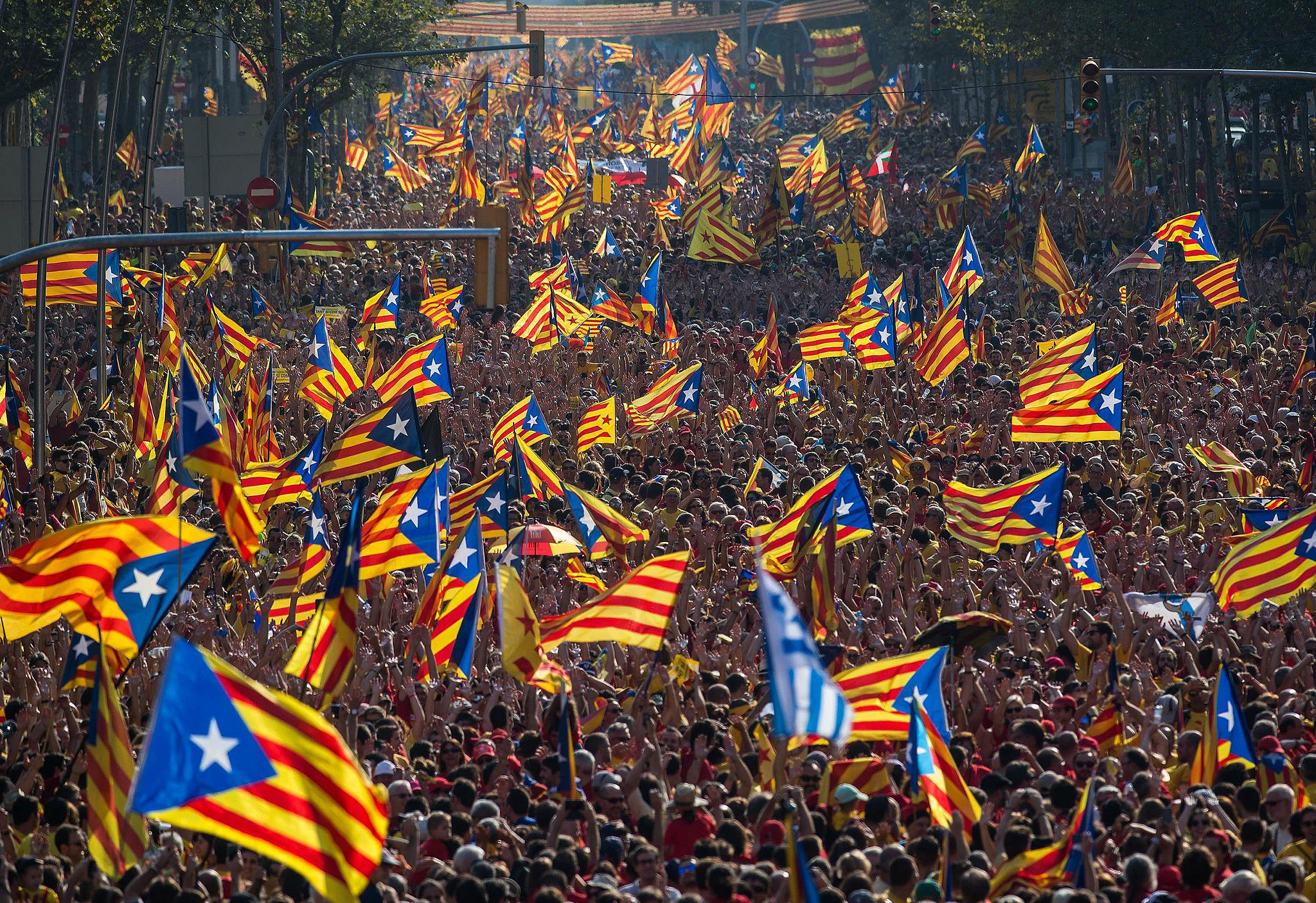Catalonian independence is the word of the week in Barcelona after pro-independence parties won majority votes in the region’s elections yesterday. For many Catalan people, the vote is a huge step toward independence.
Yet Catalonia is a small slice of the world and there are many people (like you) who are interested in what’s happening here. After all, it’s not every day that you witness a country pushing for independence without guns or violence.
So here’s a simple guide to what happened during the elections yesterday and what it means:
Catalonia independence parties won the majority of Parliament votes…
Junts Pel Si (Together for Yes) won 62 votes in Parliament. They are the most powerful pro-independence party and are led by the influence of Catalonia’s former president and pro-indie advocate Artur Mas. This victory was expected.
However, 68 seats are needed for a majority in Parliament. And majority, as far as Catalans are concerned, means independence.
Here’s the interesting twist: leftist and pro-indie group CUP won 10 votes.
The independence movement now has, presumably, 72 votes, giving them a Parliament majority.
…but they didn’t win the majority of the people.
Even though the pro-indie parties won the majority vote in the Parliamentary elections, they didn’t wine the majority in the popular vote — that is, the people’s vote. Of the4 million people who voted in the elections, 1.9 voted for the pro-independence parties.
This works sort of like America’s electoral college. Some seats are worth more than others. A candidate can win the presidency without winning the popular vote only if he has the majority of votes in the electoral college.
Despite the loss of the popular vote, Artur Mas and his party are saying the vote was a success and Catalonia independence will become a reality in the next 18 months.
So what does this mean?
Spain’s El Pais newspaper has a great breakdown of the vote and it’s importance in the push for the Catalonia independence movement.
Basically, because Artur Mas’ Junts Pel Si didn’t win an absolute majority on their own (62 votes instead of 68), he and his party are going to have to wheel and deal with CUP in order to form an alliance.
Why is an alliance important? Because if Mas and CUP don’t come to an agreement, there’s a good chance Mas won’t be elected as the regional president and the independence movement will take a serious hit. CUP and every other non-Junts Pel Si party have said they won’t vote for Mas if Junts Pel Si didn’t win the popular vote. And they didn’t.
So, over the next few months expect to hear a lot about deal making and negotiations; Catalan independence will live and die by it.
Also, it’s important to keep in mind that this election wasn’t a straightaway vote for independence. It was a vote for Parliament seats.
A real independence took place in 2014 on the 400th anniversary of Sept. 11, 1714, the day on which the Catalans lost their battle against the Spaniards and became a territory in the kingdom rather than their own country.
The vote, however, was not recognized by the Spanish government or the European Union. It was, however, a significant display of Catalan pride and enthusiasm.
Here’s a video from NBC News that will give you some helpful background info on the issue of Catalonia independence:
Additional Sources
Here’s a list some good news sources that will help you understand the Catalonia independence issue:
Catalonia Independence: 5 Possible Outcomes, El Pais
Catalonia Independence: The Vote, Reuters
Catalonia Independence: A Blow-By-Blow Account, The Guardian
Photo Credit: Day Donaldson, Flickr Creative Commons







